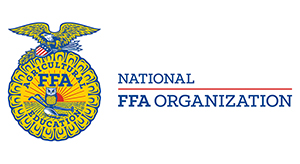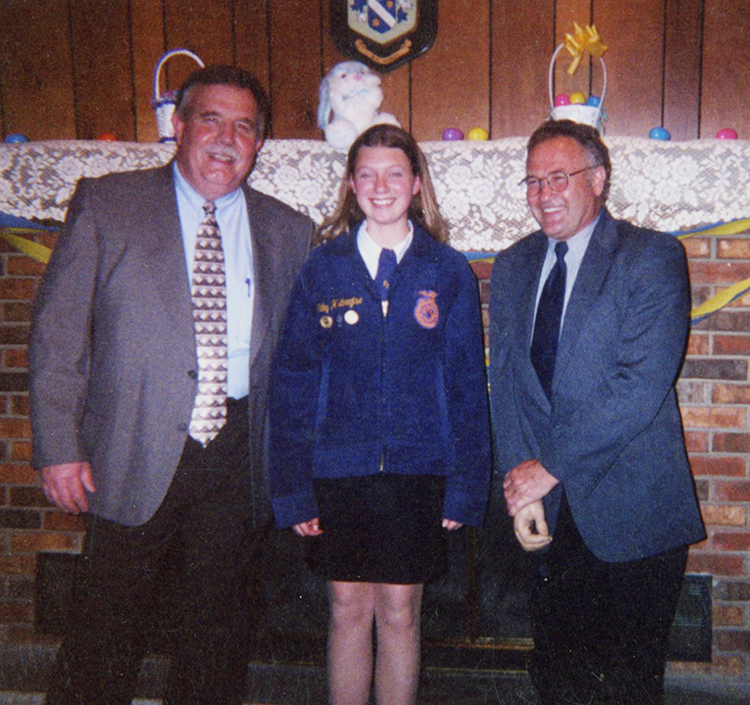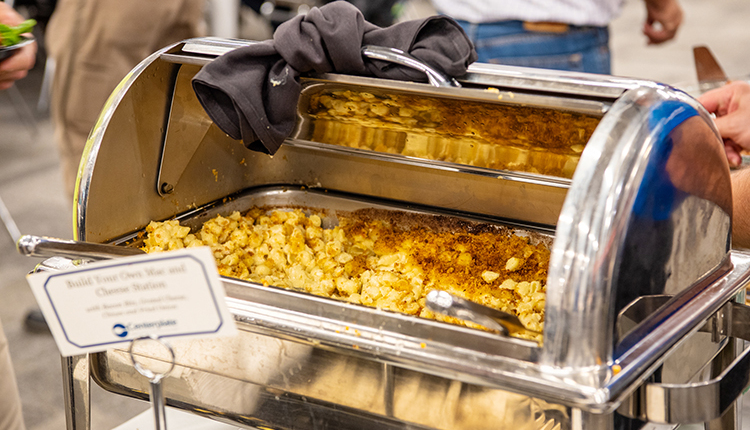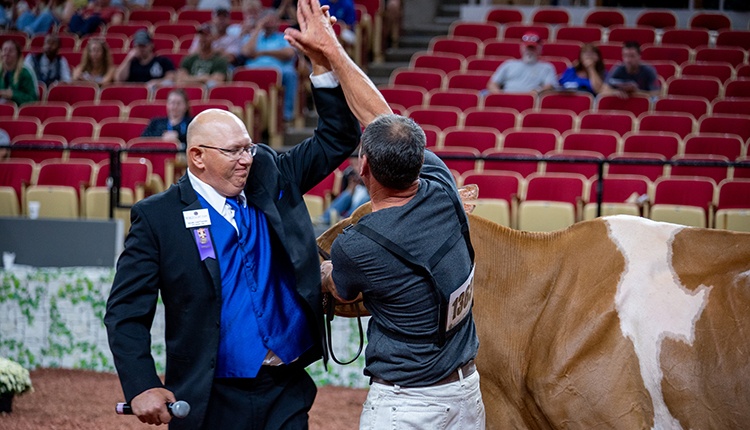
I went to a school that didn’t have that many farm kids; only a handful or so of the students in my grade had parents who were full-time farmers. So, while I was active in 4-H and worked daily on my family’s dairy farm, I wasn’t usually confident enough to wave my agriculture flag while at school. Similarly, I was sometimes unsure about donning a blue corduroy FFA jacket and participating in FFA events.

Fortunately for me, I received persistent nudges from my ag teacher and FFA advisor, Mr. Mier. My locker freshman year was close to the ag room, so he would often walk by me as I was gathering supplies for class and ask if I was going to participate in the upcoming creed speaking contest, join a judging team, or run for a chapter office. There may have been times early on when I didn’t fully appreciate this positive encouragement, but I sure do now.
Over my FFA career, I was able to build confidence through speaking contests, officer positions, and committee chairmanships. I grew my knowledge, first in poultry and then in dairy, by participating in judging contests, known as Career Development Events. I took trips out of the state to National Convention, and this was an opportunity to see new places and broaden my horizons. I got to spend time with my cousin and sister who were in FFA at the same time as me, and I made new friends who shared my background and interest in agriculture.
As an adult, I have worked with and been friends with some agriculture teachers and FFA advisors. I saw firsthand the dedication they put into their jobs and their students, regularly using their own personal time and resources to provide opportunities for their members. These past and present “Mr. Miers” are often the ones to ignite a passion for agriculture in the teenagers they mentor.
I am so thankful for my time in FFA. I only wish I would have taken advantage of even more opportunities as a member.
The organization was founded in 1928 as the Future Farmers of America. As both the students and the agriculture industry evolved, the name was transitioned to the National FFA Organization in 1988 to reflect the diversity of members who participated in agricultural education programs.
The name may have changed, but FFA is certainly still producing future farmers – my brothers are two of them. It is also shaping future veterinarians, nutritionists, marketing specialists, agriculture teachers, and so much more. And even for youth who pursue careers far removed from agriculture, these students will have a connection to farming and know where food comes from because of their time in FFA. That is certainly an asset for agriculture and something to celebrate this National FFA Week.

The author is an associate editor and covers animal health, dairy housing and equipment, and nutrient management. She grew up on a dairy farm near Plymouth, Wis., and previously served as a University of Wisconsin agricultural extension agent. She received a master’s degree from North Carolina State University and a bachelor’s from University of Wisconsin-Madison.








